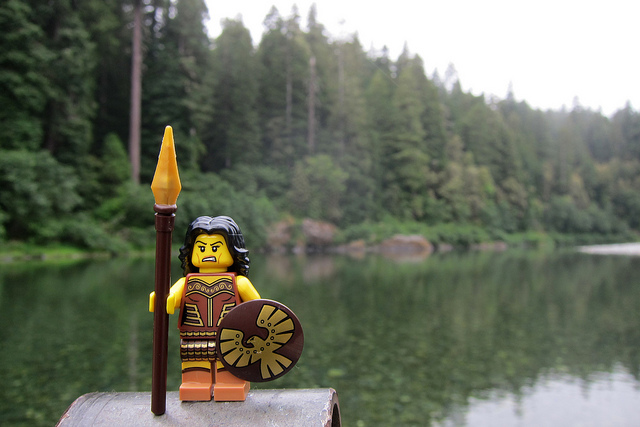ASPI suggests
If you missed last night’s ASPI event ‘Australia and Indonesia: getting back on track’, Felicity Norman has a cracking rundown of the main themes on New Mandala here (video of the event to follow shortly). Australia isn’t the only country recalibrating its relations with Indonesia; over on The Diplomat, CFR’s Joshua Kurlantzick considers how Jokowi’s upcoming trip to the American capital could reset US–Indonesia ties.
Turning to other emerging powers in Asia, the National Bureau of Asian Research has canvassed views from China, Indonesia and India on the impact of low oil prices on each country’s economy, and environmental and energy security. All three briefs provide largely positive perspectives on falling oil prices: governments can reform price regimes for oil and gas (including Indonesia’s fuel subsidy system), lower energy import bills and explore new initiatives for cooperation within ASEAN and SAARC.
Is the Australian alliance with the US too close for comfort? In a piece that some Canberra-types will find provocative, former Australian Ambassador to Indonesia John McCarthy argues that we’ve now become ‘an American satrap’ and that, if we don’t retain independence of thought and action, the alliance could be a liability in future. Keep reading here.
Intel wonks, former Deputy Director of the CIA Michael Morell has released a book that offers an insider’s perspective of DC’s intelligence community during 9/11, the Arab Spring, the Snowden leaks, and the rise of ISIS. Morell took aim at the politicians and policymakers who he believes politicised the efforts of US intelligence agencies, from drone strikes to interrogation techniques. Naming Senator Dianne Feinstein as bearing ‘significant responsibility’ for the flaws in the torture report by the Senate Select Committee on Intelligence, which, Morell states, makes ‘errors that even a smart high school student would not make’, has ruffled a few feathers in DC. Feinstein has since responded that Morell’s charges were false, and said that it was ‘unsurprising’ that his response would be as such, considering that his coauthor helped two other ex-CIA officials attempt to justify the agency’s ‘failings’.
Canadian-Ukrainian journalist Chrystia Freeland has penned a personal essay for Brookings that tracks how the ‘nightmare’ that Russia’s Vladimir Putin inflicted upon Ukraine unfolded. She details how Putin’s revisionist version of Soviet history and the political aspirations of the Ukrainian population collided, resulting in the violence today.
It’s worth reading the full testimony of CSIS’ senior advisor for Asia and China expert Bonnie Glaser before the US–China Economic and Security Review Commission for her in-depth take on China’s strategy toward the South China Sea and Southeast Asia’s response. That said, there’s not much good news between the pages: she finds it likelier that China will conclude a Code of Conduct upon completion of its land reclamation activities than at present, and any such agreement won’t be legally binding. Glaser’s testimony ends by urging Congress to send more powerful signals of American concern about Chinese behaviour to the executive and to the rest of the world.
Over on Defense One, David Sterman argues that the maritime arena will join the land as a battleground for future counterinsurgency warfare. He looks at examples of maritime insurgency, such as al Qaeda’s unpleasant track record, and questions whether the US and its allies are prepared to deal with such threats. For more, check out this recently published Congressional Research Service backgrounder on Navy irregular warfare and counterterrorism operations.
Now to this week’s tech picks. First, Chinese web services company Baidu claims to have built a supercomputer which gives software the ability to better understand speech, images and written language. A report released by Baidu earlier this week states that the supercomputer—named Minwa—has beaten Google’s previous records in the area with a 31% improvement. Second, want to play a role in tracking and imaging traveling objects in our solar system? DARPA is inviting the public to brainstorm ideas demonstrating the potential for high-res imaging of objects orbiting Earth.
And finally, what role might the Prince of Wales play in improving the availability of alternative herbal medicines and the instigation of a badger cull in the UK? The answer is not a big one, as what have become known as Prince Charles’ ‘black spider memos’ have been released to the public. The memos, named for Charles’ spidery hand-writing, detail the first-in-line’s lobbying of then-Prime Minister Tony Blair over an extremely narrow set of personal interests, including stopping illegal fishing of the Patagonian toothfish to preserve the UK’s albatrosses, and replacing the Lynx military helicopters.
Podcast
Last week, the Lowy Institute held New Voices 2015 which featured up-and-coming academics, think tankers and policymakers who grappled with Asia’s geopolitics, maritime disputes, US–China strategic competition, Japan–China ties, regional order and Australia’s role. Here’s the podcast recorded after the event featuring New Voices participants Evan Laksmana (CSIS Jakarta), Andrew Kwon (Alliance 21) interviewed by Natalie Sambhi on those issues (37mins).
Video
Chief of Army Lieutenant David Morrison sat down with ABC’s Leigh Sales in one of his final interviews in the job. They discuss fighting ISIS and its ideology, the long-term impacts of military service on mental health, the ANZAC narrative and the fallout from his now infamous ‘zero tolerance’ YouTube clip (9mins).
Terrorism researchers, watch Peter Bergen, J.M. Berger and Daveed Gartenstein-Ross testify at a hearing on the role of social media in terrorist organisation recruitment and what the US government should do to counter online messages. With the video spanning two hours, we recommend you use the transcript tool to skip to your favourite parts!
